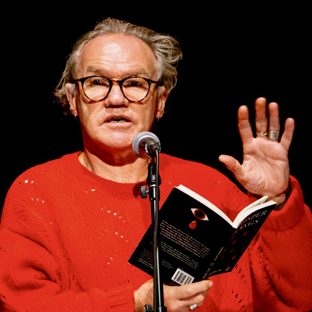All of a sudden, everyone from literary giants (Michel Faber, David Mitchell) to small presses and self-publishers are putting out near-future novels that create scenarios of how climate change will shape the lives of individuals and societies. Their conclusions are not pretty: these fictional futures – which often reference current science and technology, and extrapolate from the darker expert predictions – are grim.
How fictional is this growing new genre? Does it reflect our fears, our real-life futures, or a bit of both? And is it possible that storytellers might be able to create empathy and affect change in ways that scientists can’t?
Featuring

Jane Rawson
Jane Rawson writes novels, essays and stories, mostly about climate change and animals. Her latest novel is From the Wreck. She lives in Tasmania's Huon Valley and works for a conservation organisation.
James Bradley
James Bradley is a writer and critic. His books include the novels Wrack, The Deep Field, The Resurrectionist and Clade, a book of poetry, Paper Nautilus, and The Penguin Book of the Ocean. His new novel, Ghost Species, is published by Hamish Hamilton.

Alice Robinson
Alice Robinson grew up in Parkville and Wallan. She earned a Bachelor of Creative Arts from The University of Melbourne and a PhD in Creative Writing from Victoria University, where she was awarded the Vice Chancellor’s Award for Research. Alice’s debut novel, Anchor Point (Affirm Press, 2015), was longlisted for The Stella Prize and the Indie Book Awards (debut fiction) in 2016. Her second novel, The Glad Shout (Affirm Press) will be in out in 2019. She lives in Warragul.

